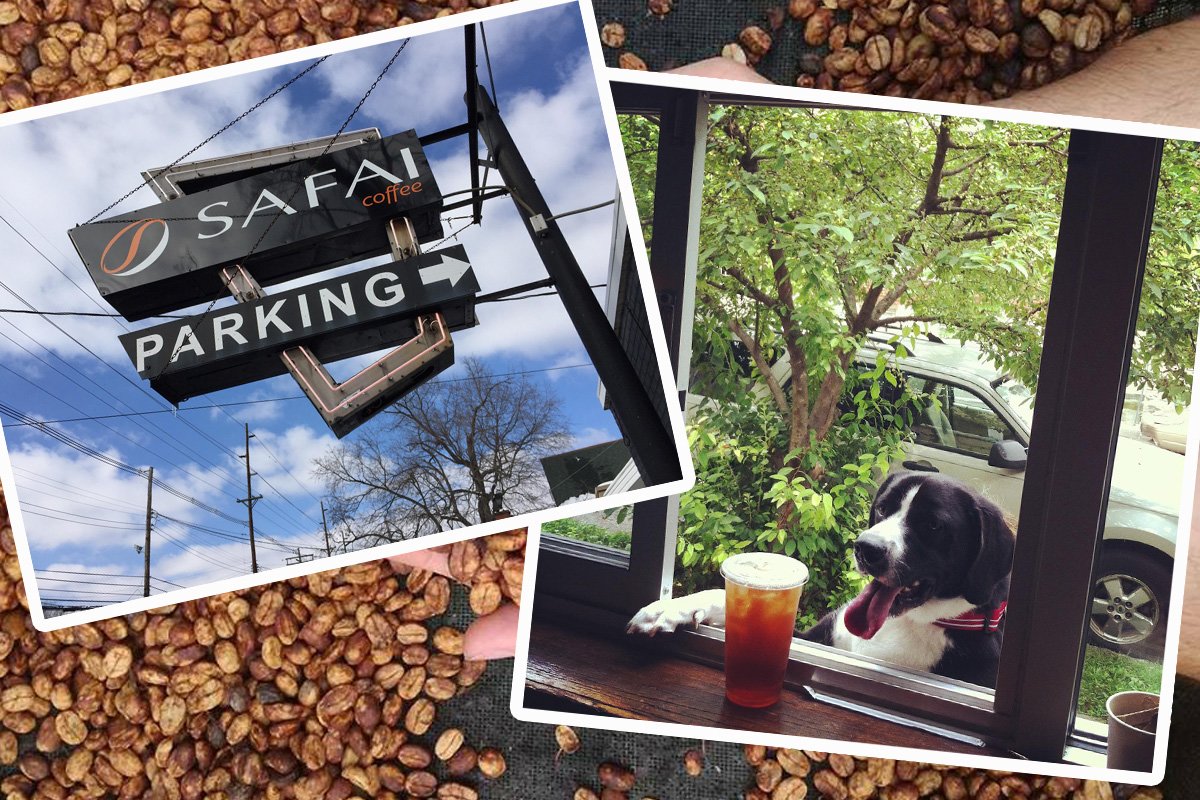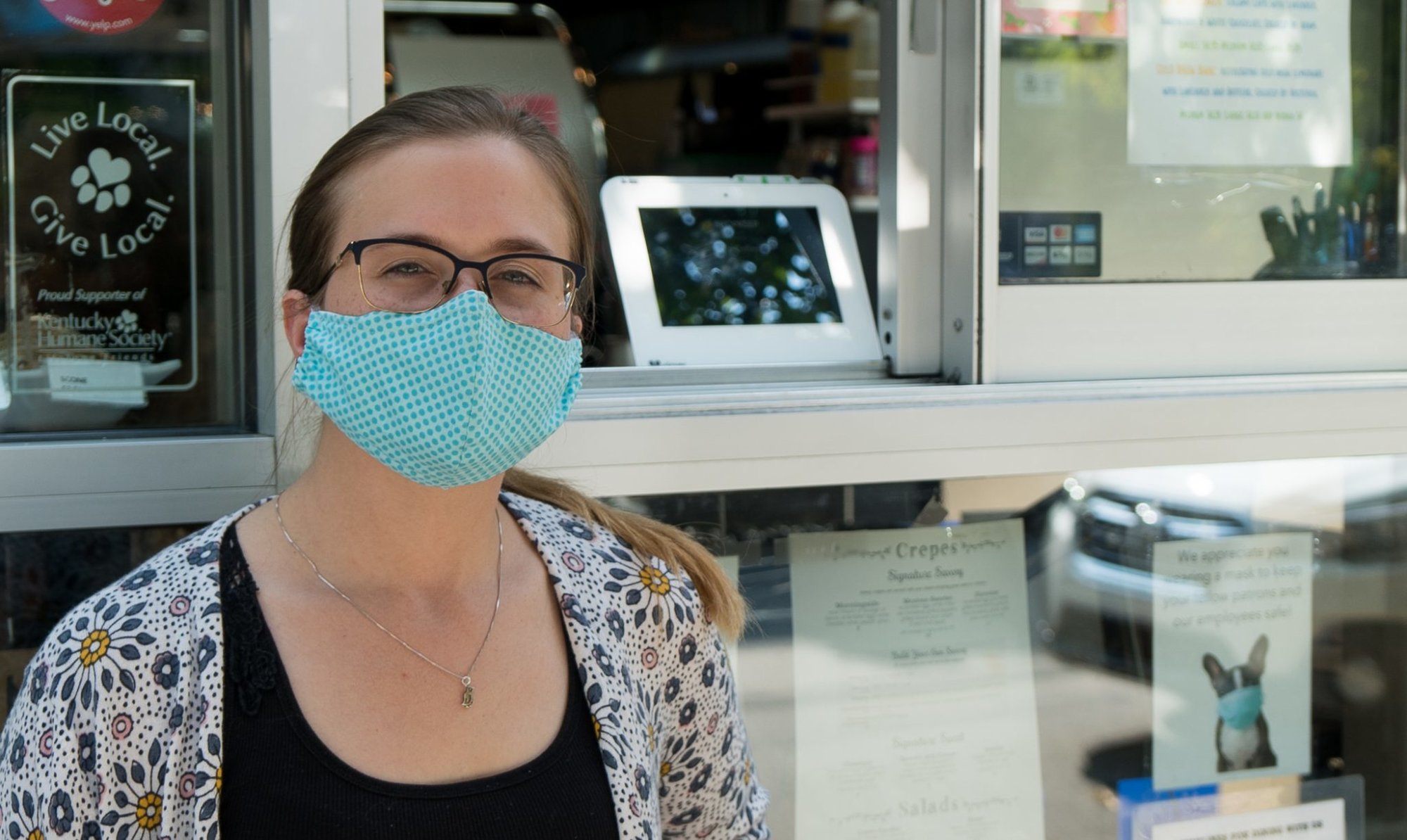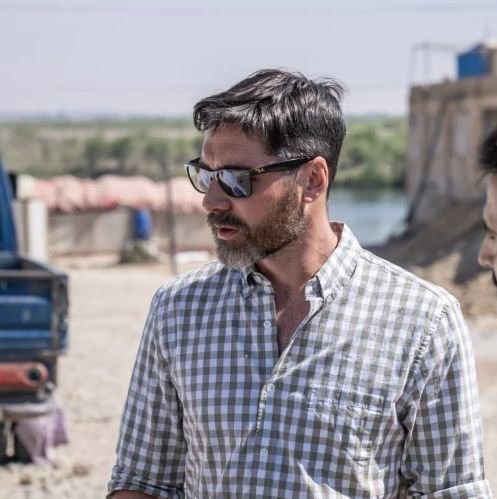
Rachel Radwanski just wanted a normal summer weekend. Three months into coronavirus lockdown, the events manager at Safai Coffee Shop in Louisville, Kentucky, invited friends over for a “socially distant” garden party at her apartment in historic Old Louisville. It was the weekend after Memorial Day. No food was served. Everyone wore masks and sat 6 feet apart.
“We hadn’t seen friends for weeks and weeks,” she said, “and we thought this was a safe time to sit outside and reconnect.”
Then, they heard the helicopters.
Soon, someone thought they heard gunshots. “No,” said Radwanski’s husband, a former Marine. It was a flash-bang grenade. There they sat, masked up, 6 feet apart, some in folding chairs, others with legs up on chaise longues, silent, listening. Old Louisville sits on the edge of downtown, where tensions had finally boiled over between protestors calling for justice for George Floyd and the police. News helicopters swarmed overhead. “Another flash-bang,” Radwanski’s husband said.

Summer 2020 was rough. The coronavirus pandemic sidelined so much of what we all consider normal. Friends and neighbors have fallen sick. Businesses small and large have suffered. Flashpoints of civil unrest erupted into open conflict across the country — not only in Louisville, but also Minneapolis; Kenosha, Wisconsin; Portland, Oregon; Atlanta; Washington, DC; and other places. Politics has never been so contentious. It’s almost fitting that summer, with its unofficial start on Memorial Day, unofficially ended with a presidential debate that can charitably be described as a dumpster fire.
The national stress level is high, but we soldier on. Radwanski’s coffee shop, Safai, has weathered this “summer to remember” with world-class pour overs and radical transparency. When an employee tested positive for the ’rona, they took to Facebook. “To our guests” was followed by 200 words of timelines, Centers for Disease Control and Prevention recommendations, and their developing cleaning plan. Eight days later, an update: no other employees or customers had tested positive. During the protests over the killings of George Floyd and Breonna Taylor, the shop hosted a fundraiser for a nonprofit that works with disenfranchised Louisville communities.
“We’re doing what we can, where we can,” Radwanski said.
As for running a small business in such chaotic times, “I want to say we’re one of the lucky ones,” she said. Eight years ago, they put in a “dog window” where customers could order from the street, just off the highly foot-trafficked Bardstown Road. They haven’t opened indoor seating yet, but the walk-up service is keeping the business afloat.
Hours were reduced for the 15 employees, but no one was laid off.
“We’re doing about 60 or 70 percent of pre-COVID sales, but considering we reduced hours, we’re doing almost the same percentage,” said Allison Tipton, the general manager at Safai. “We’re doing okay. We just got a small-business city grant, so that’s going to help us.”

The world-class coffee also helps. To the uninitiated, taking a sip of a hot cup of Safai coffee feels like that scene from Pulp Fiction. “God damn, Jimmie! This is some serious gourmet shit.”
Owner Mike Safai sources all the beans from micro lots on scouting trips around the world, then roasts them locally just down the road. Every cup of coffee served at the shop is a pour over. That attention to quality is apparent from the very first sip. Louisville is a banging coffee town, with half a dozen small roasters like Safai, but this one is No. 1 on Yelp.
In the academic, artsy neighborhood of Highlands, Safai has been geographically insulated from much of the city’s civil unrest — most of which has been contained downtown. The only protests they’ve seen are over masks. True to character type, a “Karen” threw a hissy fit one weekend when told masks were required at the walk-up window and knocked the card reader to the pavement.
She was told to leave, and she did. The card reader was fine. Summer 2020 kept rolling on.
“We love our customers,” Radwanski said. “This neighborhood has kept us open.”
Yes, it’s been weird, she said, but maybe we all need to go through this, maybe there’s some unforeseen hidden reason. Maybe it’s easier to calm down and look for that bigger picture when blissed-out on really, really good coffee.

Shea is the senior editor at Free Range American, plus an itinerant freelancer for USA Today and Men’s Journal, among others. In July 2021, Gun Digest published his first book, Rimfire Revolution: A Complete Guide to Modern .22 Rifles. He holds an MFA in nonfiction writing from Columbia University. He once tanned a deer hide in an apartment bathroom. His wife was not pleased.
BRCC and Bad Moon Print Press team up for an exclusive, limited-edition T-shirt design!
BRCC partners with Team Room Design for an exclusive T-shirt release!
Thirty Seconds Out has partnered with BRCC for an exclusive shirt design invoking the God of Winter.
Lucas O'Hara of Grizzly Forge has teamed up with BRCC for a badass, exclusive Shirt Club T-shirt design featuring his most popular knife and tiomahawk.
Coffee or Die sits down with one of the graphic designers behind Black Rifle Coffee's signature look and vibe.
Biden will award the Medal of Honor to a Vietnam War Army helicopter pilot who risked his life to save a reconnaissance team from almost certain death.
Ever wonder how much Jack Mandaville would f*ck sh*t up if he went back in time? The American Revolution didn't even see him coming.
A nearly 200-year-old West Point time capsule that at first appeared to yield little more than dust contains hidden treasure, the US Military Academy said.












